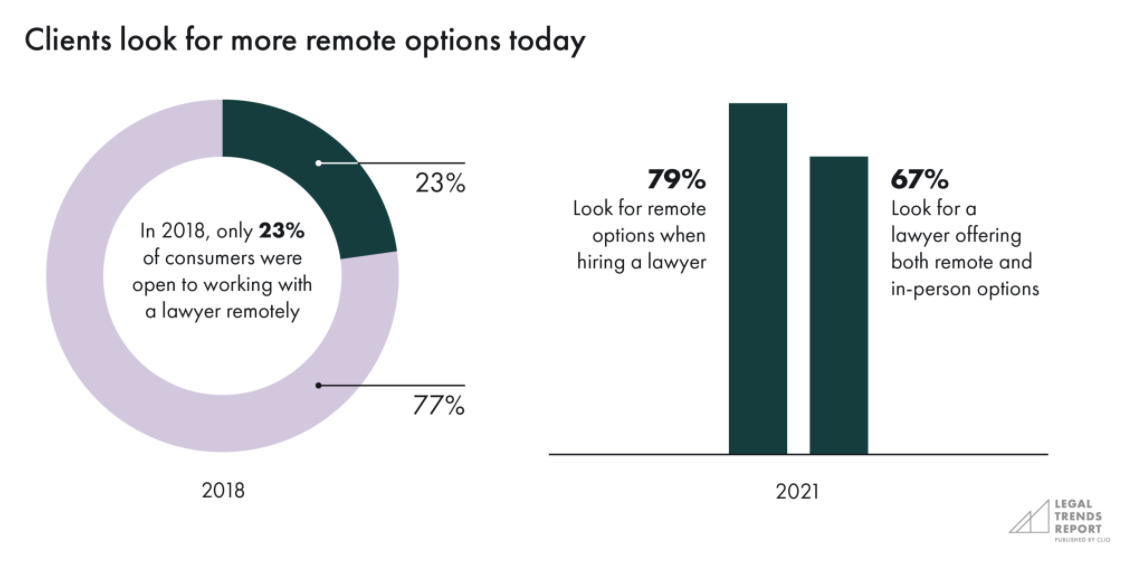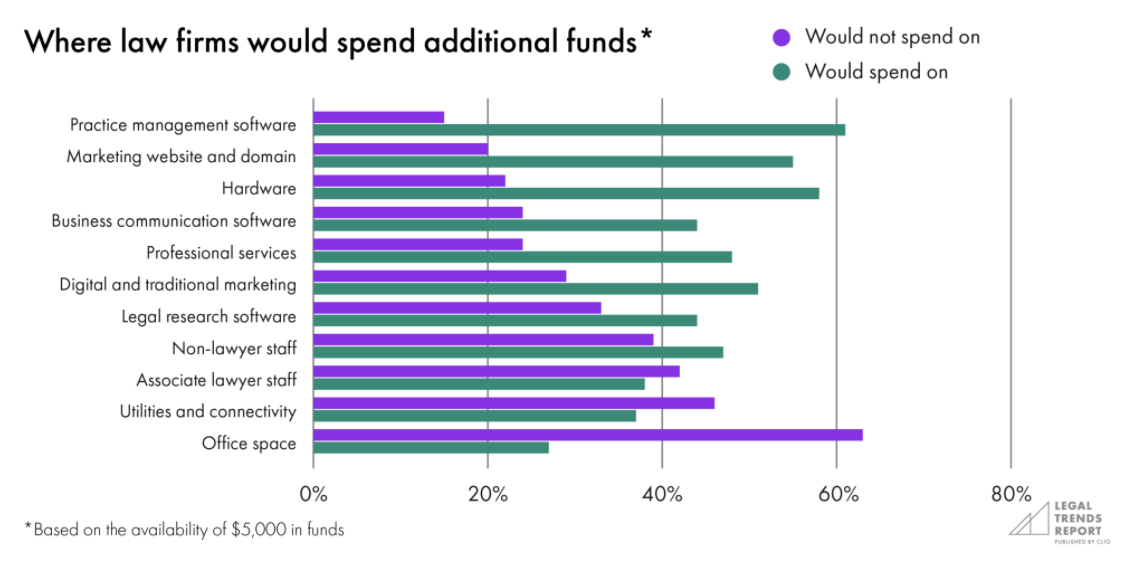 The annual Clio Cloud Conference is underway and going virtual hasn’t dampened the company’s commitment to putting on an over-the-top conference experience. LeAnn Rimes and Big Boi are performing later, which isn’t the line up at most practice management conferences. Perhaps she’ll perform a pandemic-inspired, “How do I liiiiiiiive without you (in the office)?” Entertainment aside, the show is packed with useful sessions for Clio users as well as announcements of a litany of new offerings.
The annual Clio Cloud Conference is underway and going virtual hasn’t dampened the company’s commitment to putting on an over-the-top conference experience. LeAnn Rimes and Big Boi are performing later, which isn’t the line up at most practice management conferences. Perhaps she’ll perform a pandemic-inspired, “How do I liiiiiiiive without you (in the office)?” Entertainment aside, the show is packed with useful sessions for Clio users as well as announcements of a litany of new offerings.
But instead of focusing on what Clio’s up to this year — you can check out the new stuff over here — let’s talk about the legal industry itself. Sitting on lawyer desktops — and mobile devices! — around the country affords Clio deep access to anonymized data that can paint an interesting picture of the state of the legal industry (at least among the small and solo practitioners that make up the core of Clio’s client base).
The 2021 Legal Trends Report is the sixth iteration of the study and arrives at a curious juncture. The 2020 report tracked the outbreak of a pandemic, while the 2021 report reflects the fits and starts of the industry’s recovery. It’s not much surprise that the past several months have done a number on client willingness to work remotely:

Heading To Legalweek? Come Join Above The Law!
Meet the team in NYC at our Monday night happy hour — 3/9 at 7pm. RSVP required.

Quite the jump from 23 percent in 2018 to 79 percent saying they’re more likely to hire a firm if it offers remote communication options today! While the New York Times is busy trying to spin the narrative that remote work is a fad pushed by lazy associates that we should all forget about, the reality is that clients bought into the remote world as much or more than the lawyers. Handling matters remotely is not incompatible with lawyers working from a physical office, but when the clients aren’t interested in meeting face-to-face it’s difficult to double-down on returning to the old ways.
And, yeah, there are concerns about adjusting the young lawyer training model to deal with remote mentoring, but that’s just an opening for more technological development to bridge the gap rather than a warrant to return to high overhead offices for the sake of training someone for a few months. It’s also a concern largely confined to large law firms as opposed to small shops that tend to hire their attorneys with enough experience to tell their interrogatories from a hole in the wall.
I don’t need to be spending time traveling and I don’t need to be spending this amount of money. So the office went.
Rose, Solo Attorney, NY

How LexisNexis State Net Uses Gen AI To Tame Gov’t Data
Its new features transform how you can track and analyze the more than 200,000 bills, regulations, and other measures set to be introduced this year.
Clients aren’t quite ready to abandon the personal touch entirely, of course, but the takeaway is that clients no longer demand a time-wasting personal meeting when tech exists that can keep them from taking extra time out of their day. Exciting news for lawyers tired of losing productivity to host meetings to address ministerial tasks. Bad news for lawyers depending on those meetings to pad the bills, I suppose.
And fewer meetings mean less need for one major expense too:

We’ve talked a lot about the decline of the physical office, but this question asks a slightly different and more telling question: lawyers wouldn’t even spend on improving their offices if you gave them free money. It’s not just that they aren’t seeking out new floorspace, lawyers don’t care about putting up more artwork or replacing the desks. If the office is no longer the situs of most client interaction, there’s no reason to squander resources on it. This may frustrate the banks that have all their eggs in the commercial real estate basket, but lawyers who embraced the remote work model see opportunities to maximize profits leveraging technology and downsizing on office space.
Looks like the remote work model is here to stay.
 Joe Patrice is a senior editor at Above the Law and co-host of Thinking Like A Lawyer. Feel free to email any tips, questions, or comments. Follow him on Twitter if you’re interested in law, politics, and a healthy dose of college sports news. Joe also serves as a Managing Director at RPN Executive Search.
Joe Patrice is a senior editor at Above the Law and co-host of Thinking Like A Lawyer. Feel free to email any tips, questions, or comments. Follow him on Twitter if you’re interested in law, politics, and a healthy dose of college sports news. Joe also serves as a Managing Director at RPN Executive Search.